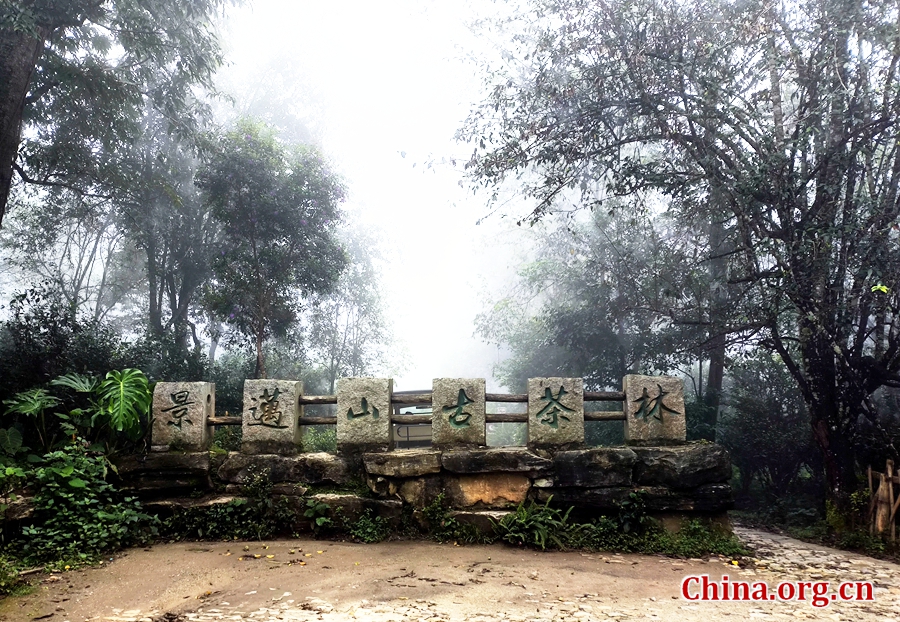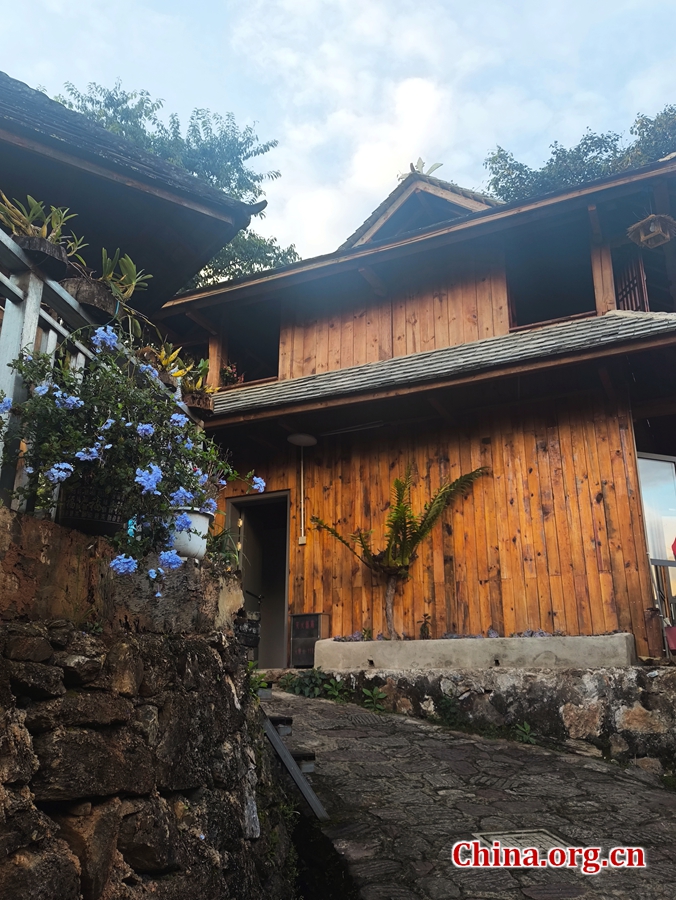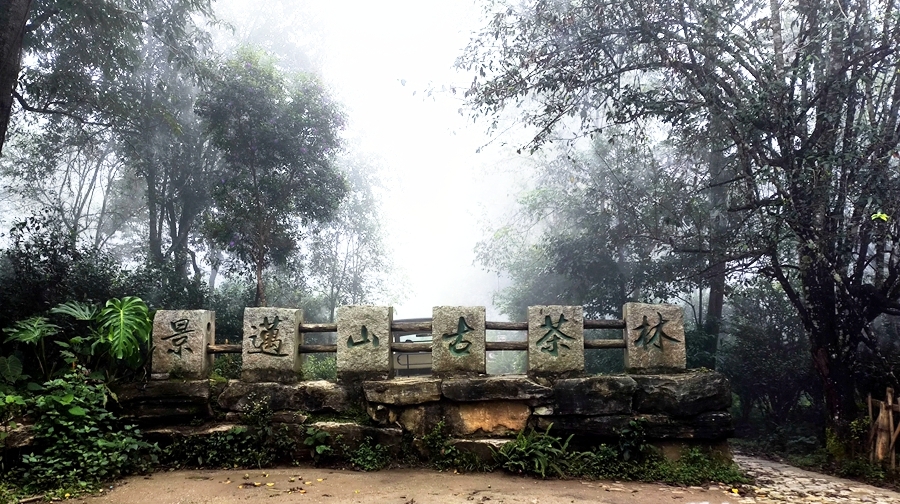
The entrance to the Cultural Landscape of Old Tea Forests of the Jingmai Mountain in Pu'er city, southwest China's Yunnan province, Sept. 18, 2025. [Photo by Xu Xiaoxuan/China.org.cn]
Ancient tea trees sprawl across Jingmai Mountain in Pu'er city, southwest China's Yunnan province, where farmers have cultivated tea for more than 1,000 years, using sustainable methods now recognized by UNESCO.
Two years ago, the Cultural Landscape of Old Tea Forests of the Jingmai Mountain in Pu'er was added to the World Heritage List, becoming the world's first cultural heritage site dedicated to tea.
The designation covers 15 villages populated mainly by Blang and Dai communities, transforming a remote agricultural region into a tourism destination while preserving traditional farming practices.

A view of the Blang ethnic hamlet of Wengji in Mangjing village of Pu'er city, Yunnan province, Sept. 17, 2025. [Photo by Xu Xiaoxuan/China.org.cn]
The Blang ethnic hamlet of Wengji in Mangjing village depends almost entirely on tea for its livelihood, with 90 households and 346 residents working in the industry.
Families tend individual tea plots ranging from 20 mu (1.3 hectares) to 200 mu, with each household running a teahouse where tourists can taste and buy tea. The cycle of planting, harvesting and processing tea leaves defines village life, becoming as natural as cooking daily meals.
Wengji head Zhang Guangming opened the area's first teahouse and homestay in 2012, capitalizing on growing interest in authentic cultural experiences.
"Some stay just a few days, others choose to live here much longer," Zhang said, noting his 18-room facility now operates at 80% capacity compared to 40-50% before the UNESCO listing.
Tourism growth has transformed the village, with 45 guesthouses now operating and many frequently booked to capacity. Zhang's restaurant, also established in 2012 as the village's first, generates monthly net profits of 50,000 to 60,000 yuan ($6,900 to $8,300).
Despite commercial growth, villagers maintain strict conservation rules preventing overharvesting. They practice agroforestry, growing tea beneath the forest canopy while selectively clearing undergrowth to balance sunlight with natural pest control, eliminating the need for chemical fertilizers.
UNESCO recognized Jingmai Mountain as representing a unique integration of tea cultivation, forest conservation and cultural heritage, previously absent from the World Heritage List.
For residents of Wengji and surrounding communities, the designation validates their ancestral home, where century-old trees continue to define daily routines and where the future of tea is inseparable from the guardianship of the land itself.


 Share:
Share: 




 京公網安備 11010802027341號
京公網安備 11010802027341號